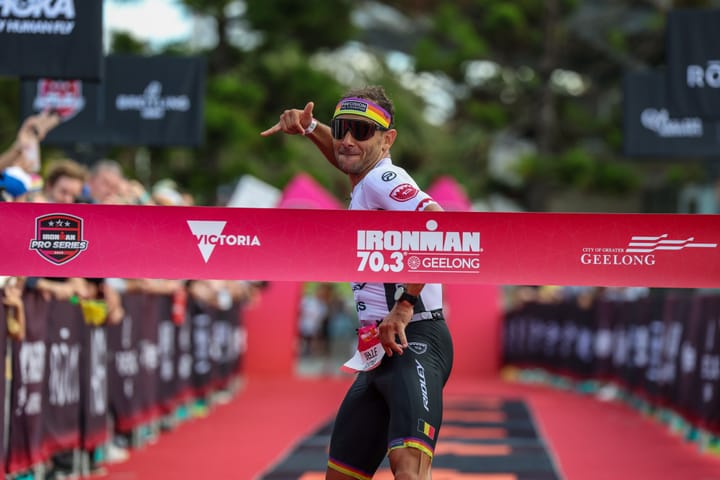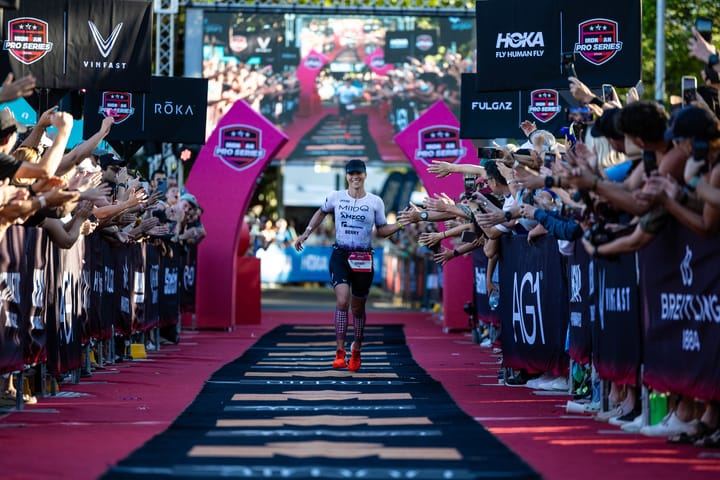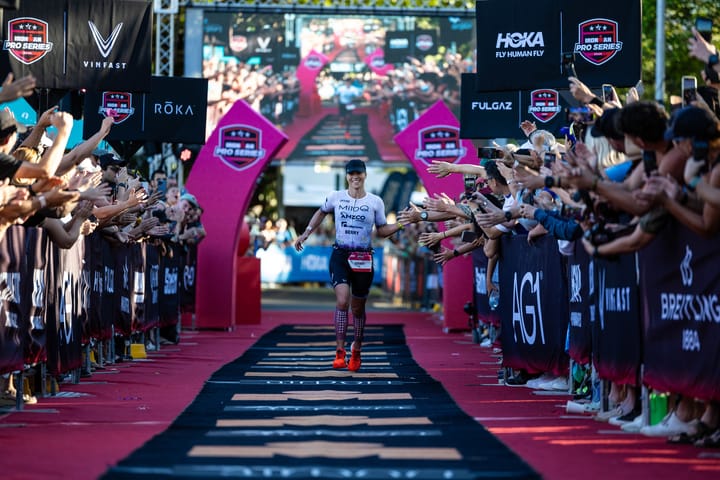Aussie Para Triathletes set to make history at Commonwealth Games
Australia’s Commonwealth Games para triathletes are set to make history on day three of competition in Birmingham across the Men’s and Women’s PTVI.

After Para triathlon made its Commonwealth Games debut with the PTWC (wheelchair) classification at the Gold Coast 2018 Games, it is the PTVI (vision impaired) athletes who have been afforded the opportunity to make their Commonwealth Games debut in Birmingham.
Eight team members will line up in Birmingham including Queensland’s 52-year-old triple Paralympian Gerrard Gosens OAM, Tokyo Paralympic teammates 31-year-old Sam Harding (athletics) from the ACT and 39-year-old Jonathan Goerlach (NSW), and fellow 39-year-old Tasmanian Erica Burleigh.
They will be joined by their guides Hayden Armstrong (Gosens), Luke Harvey (Harding), David Mainwaring (Goerlach) and Felicity Cradick (Burleigh).
Athletes will tackle a one lap, 750m swim in Sutton Park, transitioning to a taxing four-lap, 20km bike through the local neighbourhood’s leafy streets and 2-lap 5km run back in the park, crowning the 2022 Commonwealth Games champions in front of the buzzing grandstands of the impressive purpose-built venue.
For Gosens, congenitally blind from birth, the Birmingham Commonwealth Games is another chapter in his incredible story of representing Australia on the world stage.
“I don’t need to see the Australian flag to feel what it’s like to be an Australian and I don’t need to see the colours of green and gold to believe in what I believe in to represent my country. It’s a feeling about being Australian; it’s a feeling about getting out there and giving it your all.”
Tokyo Paralympian Goerlach has been racing at the top level since the 2012 World Championships, winning his first Para Series event on the Gold Coast in 2017, and finished eighth in last year’s Paralympics with guide David Mainwaring.
“The Commonwealth Games presents a really unique opportunity as not too many para sports get the opportunity to compete at a Commonwealth Games and it’s not something I thought I’d get the opportunity to do which is really cool,” said Goerlach.
“This being a major Games, with so many athletes from around the world and athletes from so many different sports and being integrated in that environment with able bodied athletes.
“It’s a rare opportunity to see what it’s like and to treat each other equally with a para sport medal the same as an able bodied medal – they all go on the medal tally.”
Tokyo Paralympian Sam Harding has had a big impact in his first World Triathlon, races including third in the A Coruna World Para Cup, and joins Goerlach on the starting line in the battle with England’s Dave Ellis, who headlines the Men’s race and is the current men’s World Champion, and England’s rising young talent Oscar Kelly.
“Going into Birmingham is going to be really good, there’s Dave Ellis who’s been the world leader and Oscar Kelly as well another up and coming triathlete, so it’ll be amazing to test myself against those two,” says Harding.
“I can’t wait to show just what I’ve been doing, be able to compete and put forward a product of what I’ve been doing the last 12 years.”
Team rookie and meningococcal B survivor Erica Burleigh will make both her international racing and Games debut in Birmingham after a rapid rise into para triathlon over the last seven months.
“I’m really, really proud to be representing Australia. To have this opportunity is absolutely unreal, it’s surreal for me and exciting and I just want to grab it with two hands and just go and do the best I can.”
About PTVI at Birmingham
The classification for Birmingham includes athletes who are totally blind (PTVI1), severe partially sighted (PTVI2) and less severe partially sighted (PTVI3). The three visual impaired classes (PTVI1, PTVI2 and PTVI3) compete in the PTVI medal event with an interval start system. Athletes race with Guides throughout the race and must be tethered together in the swim, ride a tandem during the bike segment and must be tethered on the run.





Comments ()